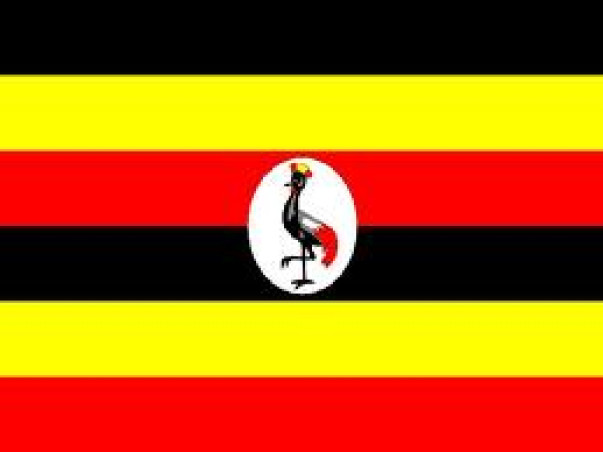Uganda: MTN Was Warned of Likely Mobile Money Fraud in 2009

By Derrick Kiyonga And Alon Mwesigwa
As early as 2009, telecommunication giant MTN had been warned of loopholes in its mobile money system, which would make it prone to fraud, according to documents The Observer has seen.
According to internal audit reports, spanning between 2009 and 2011, MTN Uganda management and staff who were working in the mobile money department did not pay as much attention as was required to key rules, paving way for a hefty loot. The audit noted that MTN failed to adhere to anti-money laundering rules.
For instance, the audit reports reveal that there were inadequate records management for both agents and mobile money subscribers, and that there was mismanagement of the user rights for the mobile money system, with staff using multiple active user logins to access the system.
Six former MTN employees - Patrick Ssentongo, Joan Nabugwawo, Brian Okurut, Angella Ayo, Eriya Baryamwijuka, and Richard Mwami - are in court for allegedly defrauding the company of Shs 16bn in a mobile money scam that spread between May and December 2011.
BLACKLISTS IGNORED
The audit in 2009 by Richard Mutesasira, the then business risk manager at MTN, showed that "the UN Security Council and Bank of Uganda blacklists for reference were not uploaded on the system for system monitoring purposes for detection of money launderers."
"It was noted that the responsible staff were not well trained on the use of the [anti-money laundering tool]... despite several reminders to the vendor [MTN] for refresher training and system upgrade, there was no affirmative response to the request as at the audit time," reads the audit report in part.
Also, the audit noted that there was no effective filing system and space for both agent and mobile money subscriber records, which made a follow-up very hard in case of any fraud.
"Out of a random sample of 27 agent accounts selected for review, eight agents' records could not be traced," the report noted.
"Some agency records like certificates of incorporation, articles and memorandum of association documents were not filed together with respective agency contracts for effective records management, making it impossible to trace some of the agency documentation."
The Observer tried to get a comment from MTN but all this was in futile. However, Joseph Matsike, MTN's lawyer, said although it was subjudice to make comments on the ongoing case, he insisted that Richard Mwami had the operational responsibility of ensuring the mobile money system worked well.
"When you look at [the audit reports], someone had the executive responsibility and Mwami had the operational responsibility, but all of that will be for court to decide," Matsike told The Observer yesterday. "MTN reacted well [to the audit reports] by closing down the Fundamo system and getting a new system, Ericsson."
The scandal around mobile money raises the issue of regulation and why there is a need for tighter monitoring. There is still no specific law regulating mobile money. Bank of Uganda and Uganda Communications Commission are at the heart of overseeing the industry. Only in 2013, BOU came up with guidelines to regulate the industry, although some observers say they aren't just enough.
In some ways, it would be harsh to heap MTN with all the blame. The mobile money product has grown extremely fast it was also going to be difficult to stamp out any fraud. In 2013 alone, mobile money transactions were valued at Shs 18.6tn, according to the central bank. This is more than the country's 2014/15 budget at Shs 15tn.
The audit further showed that the mobile money system (Fundamo) user rights administration was not effectively managed. It noted that, for instance, in 2009, nine users had multiple active user logons, making it susceptible to fraud. In 2010, it was discovered that while agents were required to maintain a cash float of Shs 1m, there were some who failed to do so but still kept operating.
"Discussions with the mobile money team revealed that it was difficult to control agents and ensure that they maintain float levels at authorized amounts. In addition, a review of the agent statuses revealed that there were approximately 100 agents who had not transacted in mobile money yet their accounts remained active," read the report.
In the same year, it was found that the suspense or dispute account in the mobile money Fundamo system was not adequately managed. The above account should be reconciled to zero on a daily basis, the report advised. However, at the time of the audit - June 19, 2010 - the suspense account balance was Shs 385,798 and this had not been reconciled.
"There is possible fraud risk which could result into financial loss," the report pointed out.
A lot of this money, it is now suspected, was stolen from MTN's dispute account. Money would be put on this account after an MTN customer initiated a wrong transaction. The money would be categorized as sent, but the recipient would not receive it. With time, the dispute account had colossal sums of money.
WITHHOLDING TAX
There were also instances where withholding tax on commission paid to agents was not paid to the Uganda Revenue Authority (URA). According to the report, "from March 2009 MTN Uganda did pay commissions to mobile money agents for services provided like registration of subscribers, purchase of airtime through mobile money accounts, transactions carried out at agent premises."
"A review was carried out by the internal audit and it was noted that 32 of the agents who are not withholding tax exempt were consistently paid commissions over Shs 1m although withholding tax was never charged nor remitted... approximately Shs 90m not withheld in taxes."
SOURCE:THEOBSERVER
 Africas leading resource for digital financial services
Africas leading resource for digital financial services


comments